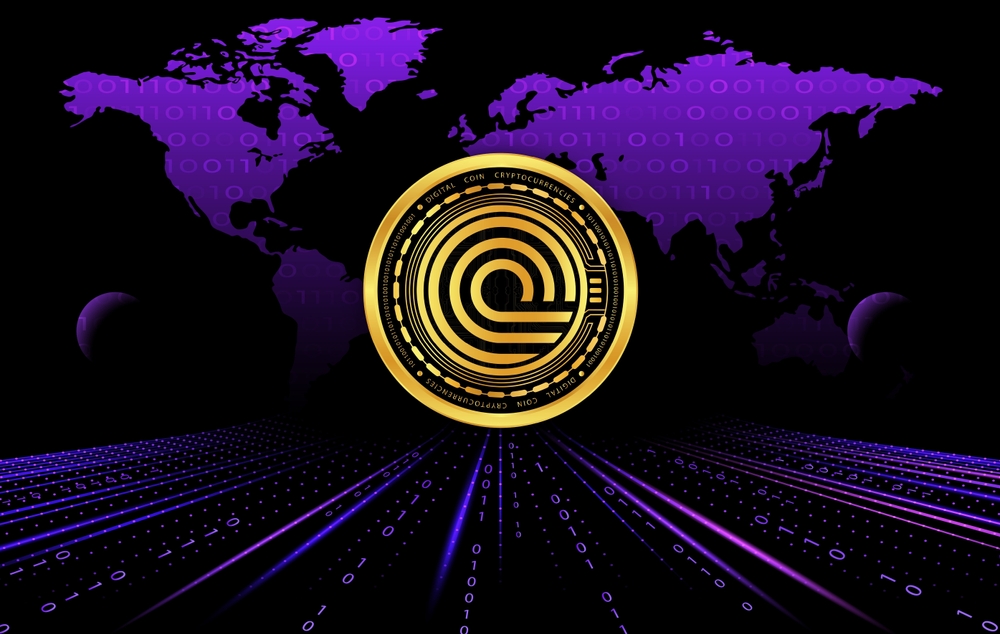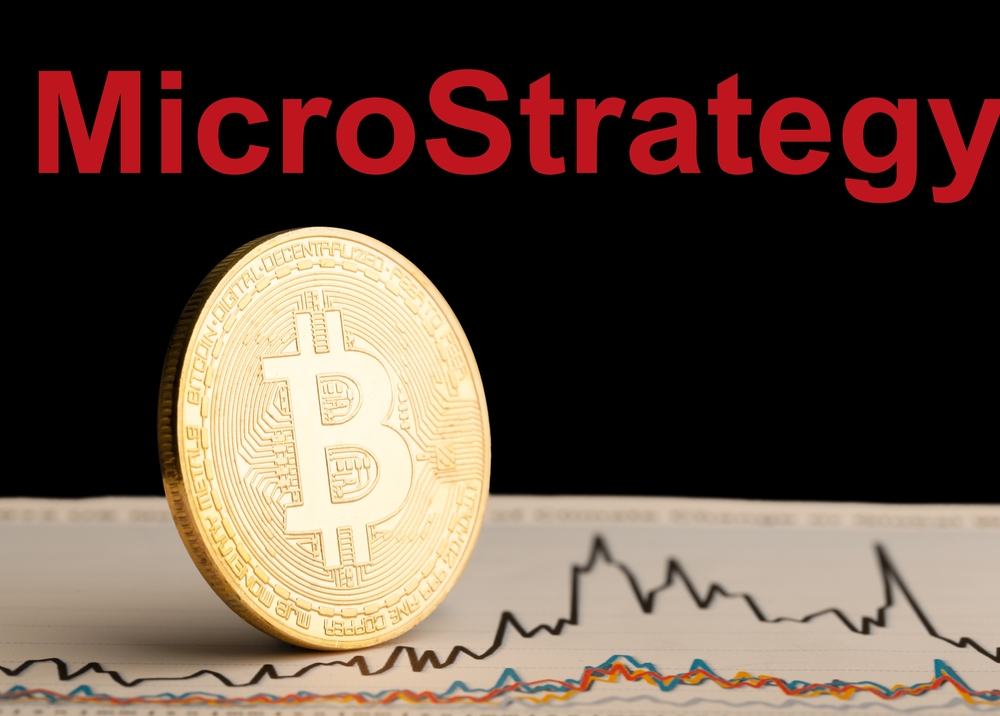Table of Contents
ToggleIntroduction
Filecoin is a decentralized storage solution that offers an alternative to traditional centralized storage systems. Developed by Protocol Labs and envisioned by Juan Benet, Filecoin leverages a blockchain-based network to create a global marketplace for decentralized file storage and retrieval. By allowing users to rent space on other users’ hard drives, Filecoin aims to create a more robust, reliable, and cost-effective storage solution.
At the core of the Filecoin network is the innovative Filecoin Protocol, which incentivizes participants to store and share files securely. Users of the network, known as storage miners, offer hard drive space in exchange for FIL, the native cryptocurrency of Filecoin. In this manner, the storage network becomes a self-sustaining ecosystem with economic incentives for users to participate.
Key Takeaways
- Filecoin offers a decentralized storage solution that challenges traditional centralized systems
- The Filecoin Protocol incentivizes users to provide storage space and share files securely
- Filecoin’s ecosystem is driven by its native cryptocurrency, FIL, which encourages user participation.
Understanding Filecoin
Filecoin is a unique decentralized storage network that leverages blockchain technology to ensure secure, transparent, and efficient file storage and retrieval. In this section, we will explore how Filecoin connects to blockchain and cryptocurrency.
Filecoin and Blockchain
Filecoin operates on a blockchain, which offers a decentralized and distributed method for keeping records. In Filecoin, records are stored as “tipsets” that contain information on storage deals and proof of retrievability by storage miners. The decentralized nature of Filecoin’s network prevents a single point of failure and ensures better data integrity.
Transactions on the Filecoin blockchain involve agreements between clients and storage miners, as well as FIL token transfers between participants. The blockchain also helps keep track of file storage and retrieval using smart contracts that automate the process, making it more efficient and transparent.
Filecoin and Cryptocurrency
Filecoin’s native cryptocurrency, FIL, plays an essential role in its ecosystem. FIL serves as a medium of exchange as well as a means to incentivize storage miners for offering their services and proving the retrievability of stored files.
Clients spend FIL tokens to pay for storage, retrieval, and transferring data within the Filecoin network. Storage miners, on the other hand, earn FIL tokens for successfully storing clients’ data and proving their retrievability. With the growth of the Filecoin network, FIL tokens facilitate transactions and provide liquidity, making the overall ecosystem more efficient and valuable.
In conclusion, Filecoin is a novel decentralized storage network that connects blockchain technology with cryptocurrency to provide secure, transparent, and cost-effective file storage solutions. By understanding the underlying mechanisms of Filecoin, such as its utilizations of FIL tokens and the blockchain, we can fully appreciate its potential impact on the future of data storage and retrieval.
Decentralization in Filecoin
Decentralized Storage
Filecoin is a decentralized storage network that aims to provide secure and efficient data storage solutions. The system relies on a distributed network of storage providers, or miners, who rent out their unused storage space in exchange for Filecoin tokens. This decentralized storage model ensures data redundancy, as multiple copies of files are stored across different nodes in the network.
Filecoin uses a proof-of-replication consensus algorithm, which requires miners to prove they have stored a unique replica of the data. This provides a fair and transparent reward distribution mechanism, encouraging miners to contribute valuable storage resources to the network.
Decentralized Web and IPFS
The InterPlanetary File System (IPFS) is a decentralized web protocol that enables peer-to-peer file sharing and content-addressable storage. Filecoin builds on top of IPFS, enhancing the decentralized web by incentivizing storage providers and creating a marketplace for storage.
When integrated with Filecoin, IPFS gains the benefits of a decentralized storage network with financial incentives, which encourages more users to participate and contribute storage resources. As a result, the decentralized web becomes more robust and resilient against censorship, providing better access to information for users worldwide.
In summary, Filecoin and IPFS work together to create a powerful decentralized storage network and web ecosystem, offering a promising alternative to traditional centralized storage solutions and enhancing the capabilities of the decentralized web.
Role of the Community
The Filecoin ecosystem thrives on the strength and diversity of its community. Comprised of developers, users, investors, and various stakeholders, this dedicated community plays a critical role in driving the growth and adoption of the Filecoin network. It contributes to the open-source nature of the project, supports its scalability, and fosters collaboration among members, ensuring the long-term success of the platform.
A primary aspect of Filecoin’s community involvement relates to its open-source development. Since its inception, the project has encouraged developers from around the world to contribute to its codebase, share ideas, and improve functionalities. This collaborative approach facilitates innovation and promotes the continuous improvement of the platform. Moreover, by involving a wide range of contributors, the Filecoin network benefits from diverse perspectives and expertise, making it more resilient and adaptive to the changing landscape of decentralized technologies.
Another prominent aspect of the community’s role is in expanding the Filecoin ecosystem. As network users, they actively participate in the storage and retrieval markets, shaping its dynamics. By providing or consuming storage services on the platform, community members help to maintain a healthy and competitive market, essential for the network’s sustainability. Additionally, through their participation, users also contribute to the consensus process, which is integral to the platform’s security and stability.
Furthermore, the community is essential in fostering partnerships and collaborations among various stakeholders in the Filecoin ecosystem. This can include research institutions, businesses, and individual developers working together to explore new opportunities, share resources, and push technological boundaries. Such collaborations not only accelerate the adoption of Filecoin but also contribute to the broader understanding and acceptance of decentralized technologies in practice.
In conclusion, the community plays a pivotal role in the development and success of the Filecoin network. Their collective expertise, passion, and commitment contribute to the project’s open-source nature, robust ecosystem, and ongoing innovation. By working together, the Filecoin community ensures that the platform remains a cutting-edge solution for decentralized storage, shaping the future of data storage and retrieval in a more equitable and efficient manner.
Filecoin Storage Network
Filecoin is a decentralized storage network that aims to provide an open market for data storage and retrieval. It offers an alternative to traditional centralized cloud storage systems, enabling clients to access a variety of storage options through its transparent platform. The Filecoin storage network consists of two primary components: the storage and retrieval markets, and the storage providers that participate in these markets.
Storage and Retrieval Markets
The storage market revolves around clients looking to store their files on the Filecoin network, and storage providers, also known as storage miners, who offer their services for file storage. Clients can select storage providers based on their preferences, such as price, location, and storage capacity. Storage deals are then made between clients and storage providers, with the storage provider receiving Filecoin tokens as payment for their services.
On the other hand, the retrieval market focuses on delivering stored files back to the clients. Retrieval miners are independent storage providers that specialize in efficiently locating and delivering requested data to clients. Like the storage market, the retrieval market operates with open competition, letting clients select retrieval miners based on factors such as speed and cost.
Storage Providers
Storage providers play a crucial role in the Filecoin network, offering their storage capacity and services to clients. There are two types of storage providers in the network: storage miners and retrieval miners.
Storage miners are responsible for providing the storage space needed by clients to store their files. They compete in an open market, setting their prices and offering various storage options to clients. By participating in the Filecoin network, storage miners can earn Filecoin tokens as they store and maintain clients’ data securely.
Retrieval miners focus on locating and delivering stored data back to clients efficiently. They also compete in an open market, offering different retrieval speeds and prices to attract clients. Retrieval miners earn Filecoin tokens for successfully delivering requested data to clients.
In conclusion, the Filecoin storage network offers a decentralized and open market alternative to conventional cloud storage services. By encouraging competition between independent storage providers, Filecoin provides clients with the flexibility to choose their storage and retrieval options based on their preferences and needs.
Filecoin Protocol and Technology
Filecoin is a decentralized storage network that leverages the power of a peer-to-peer protocol to facilitate secure and efficient storage. The network is built on a series of innovative proof mechanisms, and its mainnet was launched with the introduction of Lotus, a powerful implementation of the Filecoin protocol.
Proof Mechanisms
Filecoin employs a number of unique proof mechanisms to ensure the integrity and reliability of its network. The backbone of this system comprises Proof-of-Replication (PoRep) and Proof-of-Spacetime (PoSt).
- Proof-of-Replication: PoRep is a novel system used to ensure that a specific file is being stored by a user. This mechanism provides a verifiable proof that a file has been encrypted, replicated, and stored on a user’s hard drive.
- Proof-of-Spacetime: PoSt, on the other hand, confirms the continued storage of a file over a specified period. It allows the network to verify that a storage provider is honestly dedicating the claimed amount of space and time to the file storage.
These proof-of-storage techniques work in tandem to ensure the reliability and security of the Filecoin network.
Mainnet Launch
Filecoin’s mainnet launch marked a significant milestone for the project and the broader peer-to-peer storage ecosystem. The mainnet introduced Lotus, a powerful and user-friendly build of the Filecoin protocol, which enabled the network to achieve a successful and effective launch. Lotus offers various features and optimizations that streamline the processes of establishing and managing storage on the Filecoin network.
In summary, Filecoin is a cutting-edge decentralized storage network built on a foundation of innovative proof mechanisms and a robust peer-to-peer protocol. The mainnet launch marked the successful implementation of these technologies, ensuring the continued growth and development of this groundbreaking storage solution.
Utilization and Resources
Filecoin is a decentralized storage network designed to provide, store, and retrieve internet files using a distributed system of resources, powered by blockchain technology. The platform aims to create a more efficient and reliable ecosystem for storing and sharing data.
Filecoin API
Filecoin offers an API that allows developers to interact with the network and utilize its features. Through the Filecoin API, users can manage storage deals, access payment and rewards information, and retrieve metadata for files stored on the network. The API also provides information on miners, their storage capacity, and other network details. Tools like Filfox.info serve as block explorers, offering a convenient way for users to explore the Filecoin blockchain and gather valuable insights into network activities.
NFT and Metaverse
Filecoin’s decentralized storage solution has significant potential for applications within the rapidly growing non-fungible token (NFT) and metaverse industries. Since NFTs require a reliable and resilient storage medium for metadata and associated digital assets, Filecoin’s distributed model offers the necessary infrastructure. Web3 technologies can be integrated with Filecoin to create secure, scalable, and decentralized NFT platforms.
By collaborating with services like nft.storage, Filecoin supports the long-term preservation of NFT metadata. In addition, the platform actively participates in initiatives like Slingshot, which aims to boost the adoption of Filecoin for NFT storage and distribution. Encouraging verified deals further enhances trust in the storage network and ensures parties are rewarded fairly for providing resources.
In conclusion, Filecoin is transforming the way data is stored and shared on the internet, with a strong focus on supporting the emerging NFT and metaverse sectors through decentralized, efficient, and reliable storage solutions. Its powerful API, user-friendly tools, and growing ecosystem make Filecoin a valuable resource for anyone looking to harness the potential of distributed storage networks.
Comparative Analysis
Filecoin is a decentralized storage network that enables users to rent out their unused storage space in exchange for cryptocurrency tokens called FIL. Unlike centralized storage solutions like Dropbox, Filecoin operates on top of the InterPlanetary File System (IPFS), a peer-to-peer network that removes the need for a single point of control. This design feature allows for greater security and privacy, as data is distributed across the network and cannot be altered or accessed without permission.
Several comparisons can be made between Filecoin and Dropbox. Firstly, decentralization is a primary distinction, with Filecoin’s architecture greatly reducing the risk of data breaches or censorship, owing to its lack of a centralized server. In contrast, Dropbox’s centralized infrastructure is more vulnerable to attacks and unauthorized access.
When it comes to cost, Filecoin offers a potentially more affordable option for users in need of storage space. By enabling individuals to share their unused storage capacities, Filecoin creates a competitive market where storage providers are encouraged to offer lower prices, benefiting end-users. On the other hand, Dropbox provides a fixed pricing structure with scalable storage plans, which may not always cater to the specific needs of individual users.
In terms of ease of use, Dropbox is known for its user-friendly interface and straightforward file management system. Filecoin, while offering more advanced features like data encryption and redundancy, may require users to familiarize themselves with blockchain technology and the token-based economy.
Moreover, Filecoin’s decentralized nature enables a more global and equitable participation in the storage market. Anyone can join the network without needing permission, creating opportunities for individuals in remote or underserved regions worldwide. Dropbox, being centralized, primarily relies on its own infrastructure and data centers, which may inadvertently prioritize certain geographic regions over others.
Finally, it is important to highlight the differences in their underlying technologies. Dropbox relies on traditional cloud storage architectures, while Filecoin utilizes blockchain technology for secure and transparent transactions. This fundamental disparity results in unique advantages and potential shortcomings for each platform, depending on users’ specific requirements and preferences.
In summary, while Filecoin and Dropbox both offer storage solutions, they cater to different user requirements and preferences. Filecoin’s decentralized nature, affordability, and accessible global market are contrasting features against Dropbox’s centralized infrastructure, fixed pricing, and reliance on data centers. Users should carefully consider these differences while choosing a storage platform that best aligns with their needs.
Frequently Asked Questions
How do I set up a Filecoin wallet?
Setting up a Filecoin wallet involves choosing a compatible wallet software, installing it on your device, and following the wallet’s instructions to generate a new Filecoin address. Remember to back up your private keys and mnemonic phrases to ensure the security of your Filecoin assets.
What is the storage cost of Filecoin?
The storage cost of Filecoin varies depending on market demand and the available storage capacity offered by Filecoin miners. Users can check the current storage pricing on various Filecoin explorers and marketplaces to determine the most competitive rates for their needs.
How does Filecoin integrate with IPFS?
Filecoin and IPFS (InterPlanetary File System) are complementary technologies designed to facilitate decentralized and distributed data storage. IPFS provides a content-addressed, peer-to-peer method of storing and sharing data, while Filecoin adds an incentivization layer by enabling users to pay for storing their files on the network. Filecoin network participants can use IPFS as a method for addressing and transporting data while benefiting from Filecoin’s storage marketplace.
Is investing in Filecoin a good idea?
Investing in Filecoin, like any cryptocurrency, involves risks and potential rewards. The value of Filecoin tokens (FIL) can be volatile, and it is essential to assess your own financial goals, risk tolerance, and knowledge about the project before making any investment decision. It is advisable to consult with a financial advisor before investing in Filecoin or any other cryptocurrency.
What is the status of Filecoin’s development on GitHub?
Filecoin’s development is actively ongoing, with Protocol Labs leading the project’s contributions. Filecoin’s GitHub repositories host the code for various software implementations, tools, and documentation that developers, miners, and other community members can contribute to and learn from.
How can I explore Filecoin transactions?
Filecoin transactions can be explored using blockchain explorers dedicated to the Filecoin network. These explorers allow users to search for specific transactions, addresses, and network statistics, providing insights into the Filecoin blockchain’s state and activities. Some popular Filecoin explorers include Filscan and FilFox.

















